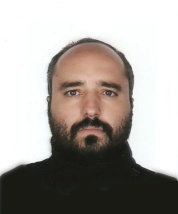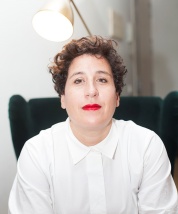Krakatoa
A Javanese fisherman working on a platform at sea spends his last day before the greatest volcano eruption of all time unfolds.
The film narrates the last day of Kesuma, a young Bagan fisherman. Kesuma survives by living on his bamboo-fishing platform, a few kilometers away from the volcanic island of Krakatoa in Indonesia. After a hard night’s fishing, where fish have mysteriously disappeared, we are introduced to the protagonist, Kesuma, seeing him the next day repairing his nets and caring for his platform. A giant explosion takes Kesuma by surprise and shocks him—a tsunami engulfs everything, and the film turns upside down. Kesuma wakes up on a deserted island. The tsunami tossed him through the violent waves. As a castaway he strolls around the island desperately looking for water and food, until he finally finds a cave where he can hide, hoping for the eruptions to end. He prepares himself for the ultimate sacrifice. Nothing can prepare him or the spectator for what is coming.
Krakatoa is a hybrid film, composed of speculative fiction, documentary sonic narrative, and abstract scientific imaging. Working from a sonic reconstruction of the 1883 eruption and mixing it with testimony account of a survivor of the last eruption of Krakatoa in 2018; the film explores the sensorial affect possibilities of film as a medium and explores ways of introducing audiences with new ways of empathy with our environment through abstract audiovisual embodiment. The eruption of Krakatoa in 1883 has been considered one of the most devastating natural phenomena in human history, also considered to be the loudest natural noise produced by the earth in recorded history. The Krakatoa eruption produced some of the most remarkable natural sightings, its impact could be seen all over the world and changed weather and sky conditions around the planet.


(54999) 2F, JEONJU Cine Complex, 22, Jeonjugaeksa 3-gil, Wansan-gu, Jeonju-si, Jeonbuk-do, Republic of Korea
T. +82 (0)63 288 5433 F. +82 (0)63 288 5411
(04031) 4F, 16, Yanghwa-ro 15-gil, Mapo-gu, Seoul, Republic of Korea
T. +82 (0)2 2285 0562 F. +82 (0)2 2285 0560
(54999) JEONJU Cine Complex, 22, Jeonjugaeksa 3-gil, Wansan-gu, Jeonju-si, Jeonbuk-do, Republic of Korea
T. +82 (0)63 231 3377
Privacy PolicyTerms of service
COPYRIGHT © JEONJU International Film Festival ALL RIGHTS RESERVED (M2)